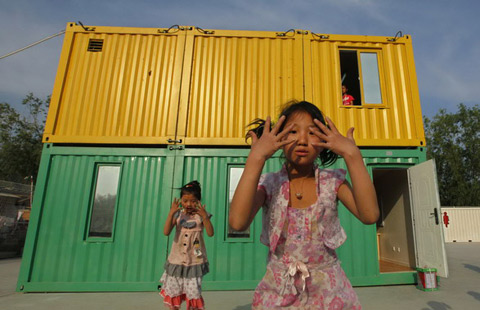Price full cost of water
Updated: 2014-04-04 08:14
(China Daily)
|
|||||||||||
THE THREE-TIRED WATER PRICING REFORM that Beijing is set to introduce is a badly-needed first step to deal with the looming water shortage the city faces.
To quench its growing thirst, however, the city must quickly raise water prices to cover at least the cost of water supply.
The two plans that the Beijing Water Authority released on Wednesday to solicit public opinion on progressively raising water prices all suggest a rise of about 1 yuan (16 US cents) for the first-tier water price that applies to 85 to 90 percent of households in the city.
This would mean a 25-percent rise in the water bills of most local families, which undoubtedly represents an effort to encourage water conservancy. But it hardly amounts to an adequate response to the Chinese capital's challenge of avoiding a looming crisis in water supply.
As one of the most thirsty cities in the world, Beijing's water resources are less than 300 cubic meters per capita, only one-eighth of the national rate and one-thirtieth of the world average.
Worse, the rapid growth of its population and economy, as well as disruptive climate change, have only increasingly widened the gap between Beijing's water usage and the available local water resources.
By adding no more than 20 yuan per month to the water bills of 90 percent of local families, it is doubtful if the two plans that the Beijing municipal government has come up with will really help build much momentum in water conservation practices.
On one hand, prices for water will remain relatively cheap. Most residential consumers in Beijing will pay 5 yuan (81 US cents) per cubic meter of water, compared with a global average of $2 per cubic meter.
On the other hand, the hiked prices would still not cover the total cost of water resources, supply and treatment. It is shocking to know that in such a thirsty city as Beijing, local residents are subsidized by about 2 yuan per cubic meter for their use of water.
The local authority's concern over the impact of water price hikes, especially on low-income families, is understandable. But the need of targeted subsidies for a few is no replacement for a clear price signal to inform the majority of consumers about the need for efforts to conserve precious water supplies.
All Chinese cities have been required to charge tiered prices for household water by the end of 2015. Beijing should not only start early, it should also seek to achieve more in conserving water.
Related Stories
Beijing prepares for new water rates 2014-04-02 17:19
Electromechanical Equipment Installation in the Gezhouba Water Conservancy Project (China) 2014-04-01 13:35
Shortage of water won't dilute attraction of famed Longjing tea 2014-03-28 08:45
Raising water charges a bane for poor families 2014-03-26 08:25
Today's Top News
Ctiy starts emergency response to Malaysian kidnapping
China reports 2 more H7N9 cases
Turkey expects China's high speed rail investment
NASA halts co-op with Russia
Putin officially divorces his wife
Search for MH370 'must not ease up'
China announces economic package
2 more human H7N9 cases in China
Hot Topics
Lunar probe , China growth forecasts, Emission rules get tougher, China seen through 'colored lens', International board,
Editor's Picks

|

|

|

|

|

|





